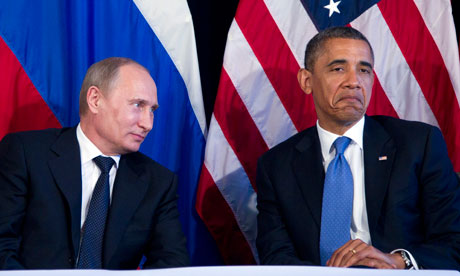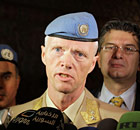RIO DE JANEIRO: Some 39 chief executives of banks, investment funds and insurance firms pledged at a Rio+20 business forum to integrate the Earth's natural capital into loans and investments.
Twenty years after the first Earth Summit highlighted the importance of the natural environment, they unveiled a "Natural Capital Declaration" that commit their companies also to reporting or disclosing on the theme of natural capital and accounting for natural capital in accounting frameworks.
Natural capital comprises Earth's natural assets (soil, air, water, flora and fauna) and the ecosystem services flowing from them. Neither these services nor the stock of natural capital that provides them are adequately valued compared to social and financial capital, the signatories said.
The declaration calls on the private and public sectors to work together to create the conditions necessary to "maintain and enhance natural capital as a critical economic, ecological and social asset."
It also urges policy-makers at the UN-sponsored Rio+20 conference to move forward in crafting legislation and regulations that can spur the development of financial products and services that sustain the earth's natural capital.
Among those who signed were chief executives of China Merchants Bank, National Australia Bank, Japan's Sumitomo Mitsui Trust Holding and China's Shenzhen Development Bank.
The World Wide Fund for Nature ( WWF), the Carbon Disclosure Project, Fauna and Flora International and Conservation International were the first four non-governmental, not-for-profit organisations to back the initiative.
"The private sector must build momentum post-Rio to ensure that valuing natural capital becomes embedded into both public and private sector investment decisions," said WWF's Director General Jim Leape. "To achieve this, new indicators may be needed and governance arrangements may need to change. The private sector has a key role to play," he added.
World leaders are to meet here June 20-22 to mull prospects for spurring sustainable development that would reconcile economic growth with poverty eradication and environmental protection.
Twenty years after the first Earth Summit highlighted the importance of the natural environment, they unveiled a "Natural Capital Declaration" that commit their companies also to reporting or disclosing on the theme of natural capital and accounting for natural capital in accounting frameworks.
Natural capital comprises Earth's natural assets (soil, air, water, flora and fauna) and the ecosystem services flowing from them. Neither these services nor the stock of natural capital that provides them are adequately valued compared to social and financial capital, the signatories said.
The declaration calls on the private and public sectors to work together to create the conditions necessary to "maintain and enhance natural capital as a critical economic, ecological and social asset."
It also urges policy-makers at the UN-sponsored Rio+20 conference to move forward in crafting legislation and regulations that can spur the development of financial products and services that sustain the earth's natural capital.
Among those who signed were chief executives of China Merchants Bank, National Australia Bank, Japan's Sumitomo Mitsui Trust Holding and China's Shenzhen Development Bank.
The World Wide Fund for Nature ( WWF), the Carbon Disclosure Project, Fauna and Flora International and Conservation International were the first four non-governmental, not-for-profit organisations to back the initiative.
"The private sector must build momentum post-Rio to ensure that valuing natural capital becomes embedded into both public and private sector investment decisions," said WWF's Director General Jim Leape. "To achieve this, new indicators may be needed and governance arrangements may need to change. The private sector has a key role to play," he added.
World leaders are to meet here June 20-22 to mull prospects for spurring sustainable development that would reconcile economic growth with poverty eradication and environmental protection.


